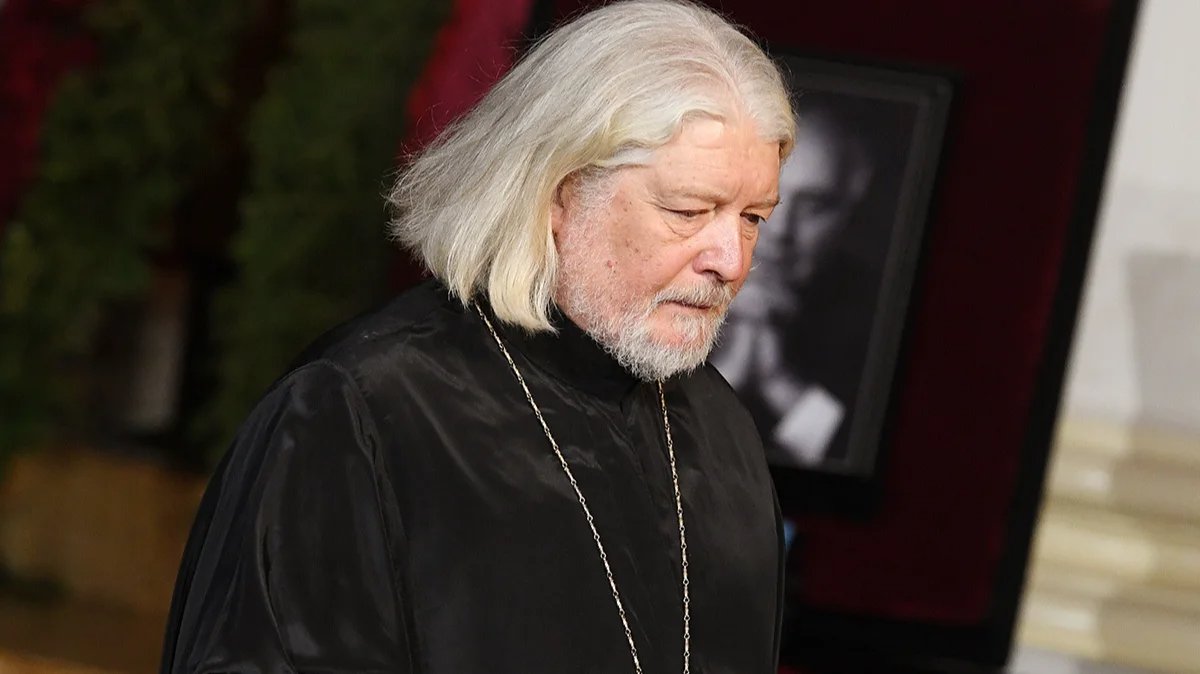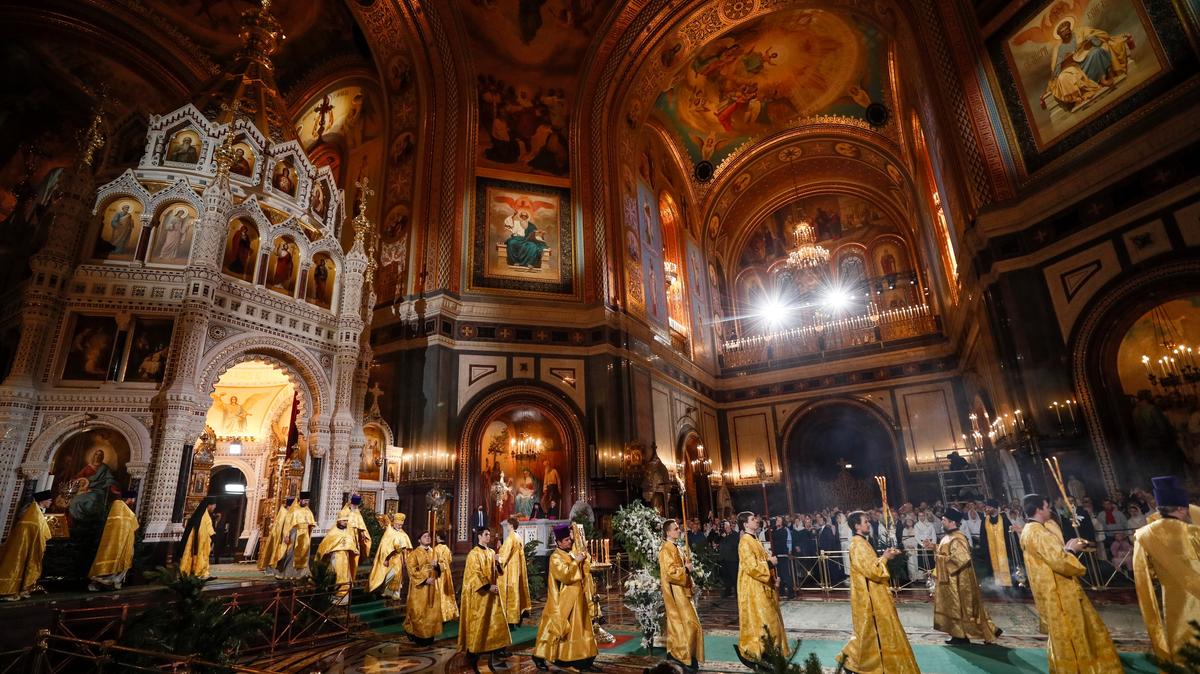Just 1.4 million Russians attended a church service this Christmas, a figure that has halved in just a few years and that now amounts to just 1% of the population. Among them are many officials and entrepreneurs who wear their devotion on their sleeves and are also distinct from the general population in nearly all other respects.

Leonid Gozman
Russian opposition politician
Not to be confused with other Orthodox churches, of which there are many, the Russian Orthodox Church (ROC) is a fairly small sect, the head of which, Patriarch Kirill, should have no claim to speak on behalf of Orthodox believers, most of whom do not belong to his church, let alone on behalf of the entire nation.
Besides its outsized influence given its relatively small flock, there are many other notable aspects to the ROC’s unique composition worth noting. For one, despite being a fantastically rich institution, its ordinary clergy members often live in poverty and are forced to depend on the largesse of local authorities or other sponsors. It’s quite a different story for its bishops, however.
Another curious fact is that the government has declared the ROC to be the state church and allows it to interfere at will in the lives of not only its own parishioners, but of everyone else in Russia too.
Perhaps most importantly of all, Russia is an Orthodox culture, and its art, architecture and traditions have taken shape under the influence of Orthodoxy. All Russians therefore, regardless of their attitude to religion, live in that cultural context, meaning that everything that happens within the ROC affects not just the 1% of the population that regularly goes to church, but everyone else in the country as well.
I may be an atheist, but I am a staunch believer in the benefits that a strong church, independent of the state, would bring to the country. An institution with backbone could have resisted the arbitrary rule of the state. It could provide moral support to those who find themselves outside society. Just as the Catholic Church in Poland did, it could also play a crucial role in times of political crisis.
We have none of that in Russia, and this is no recent development. The ROC, which enjoyed enormous popularity after the collapse of communism, had a great opportunity to become just such a church. But instead of rising to the occasion, the ROC opted instead for well-paid servility over serving the country and its people.
On 19 August 1991, as tanks rolled through the streets of Moscow on the first morning of the hardliner putsch against Mikhail Gorbachev’s reforms, Patriarch Kirill’s predecessor Alexy II was at the Kremlin to address the World Congress of Compatriots. What better opportunity could he have had to appeal for calm, to reassure the Russian people and to condemn those who were willing to unleash civil war in Russia? He didn’t do anything of the sort, of course, choosing to act as if nothing was happening instead.
The church’s total subjugation to the state is hardly news, of course. Not only has it supported the war in Ukraine, it has even gone as far as blessing Russian ballistic missiles.
Just before Christmas, the church also banned one Father Alexey Uminsky from his ministry.
Father Alexey is one of the very few Orthodox priests who took an openly anti-war stance. His positive influence has been felt not just by believers, but by anyone who has come into contact with him. I am personally most impressed by the work he has done with a children’s hospice. I cannot understand where he finds the strength to communicate with dying children and their parents. How does he find the right words? I imagine that in such a corrupt and thoroughly bureaucratic institution he is one of the few who genuinely believes in God.

Father Alexey Uminsky. Photo: Dmitry Dukhanin / Kommersant / Sipa USA/ Vida Press
Not satisfied with merely stripping Father Alexey of his ministry, now the ROC is also trying to defrock him.
Why has the church turned on him so savagely? Uminsky didn’t stop the ROC singing Putin’s praises or blessing murder, profiteering or breaking all conceivable commandments. And yet they have still gone for the jugular.
Of course the bishops dislike him. What else could crooks and hypocrites think of an honest and brave person?
Once they transitioned from being mere thieves to bloodsuckers and disregarded the commandment “thou shalt not kill”, among others, their world became a binary of us and them, and when a person begins to think independently, us can rapidly become them.
The enemy is anyone with a point of view, even if that point of view happens to overlap with what they proclaim to be the truth that day.
But anyone who is against the war, with a world view to back up their position, is a mortal enemy. And they obviously couldn’t let an enemy like Father Alexey speak, especially not from the pulpit.
Fear is also central to their logic. They fear truth as cockroaches fear light. Their power isn’t just based on a lie, but on the majority of Russians knowing that openly opposing them would mean risking life and limb. This is why the government overreacts so brutally to even the mildest protest.
What’s the worst that could happen if someone attends a demonstration or replaces the price tags in a supermarket, you ask? Well, the answer is prison, and the sentences just keep getting longer. Knowing how wrong they are about everything, those in power are afraid that people might listen to those who tell the truth.
Father Alexey stood up to this savagery and evil on a daily basis. His parishioners, the parents of the children at the hospice, and everyone else he has met along the way could see that he wasn’t motivated by personal gain. It was just the way he lived, believing in himself, in God, in the truth, and following his faith.
Father Alexey’s constant heroism is an even more appealing characteristic than its one-off cousin and inspires emulation. To all who know him, it’s self-evident that the truth and power are with Father Alexey, not Kirill or Putin, and that’s precisely what both the church and the Lubyanka are so afraid of.
Views expressed in opinion pieces do not necessarily reflect the position of Novaya Gazeta Europe.
Join us in rebuilding Novaya Gazeta Europe
The Russian government has banned independent media. We were forced to leave our country in order to keep doing our job, telling our readers about what is going on Russia, Ukraine and Europe.
We will continue fighting against warfare and dictatorship. We believe that freedom of speech is the most efficient antidote against tyranny. Support us financially to help us fight for peace and freedom.
By clicking the Support button, you agree to the processing of your personal data.
To cancel a regular donation, please write to [email protected]

